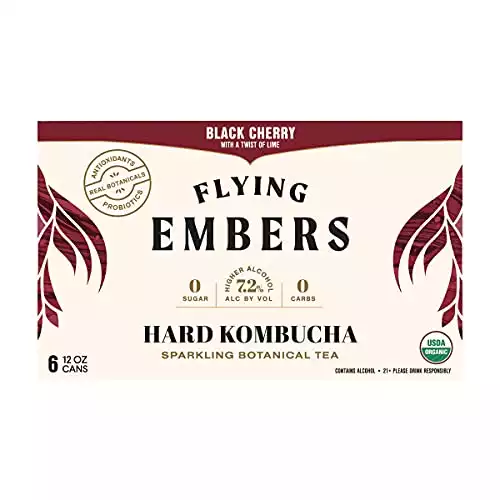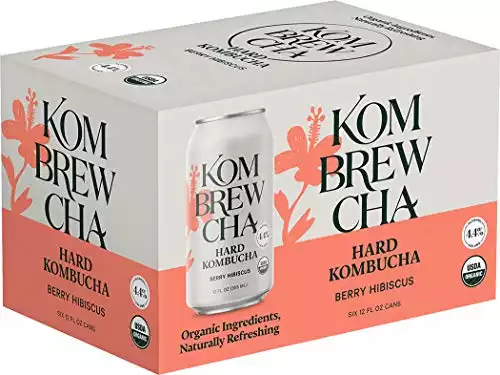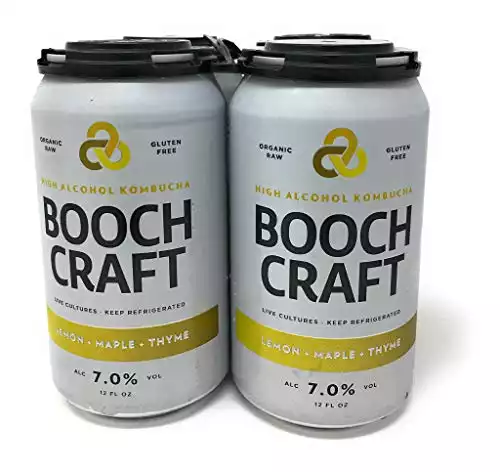While it is true that hard kombucha has more alcohol in it, does hard kombucha have probiotics? Let’s find out.
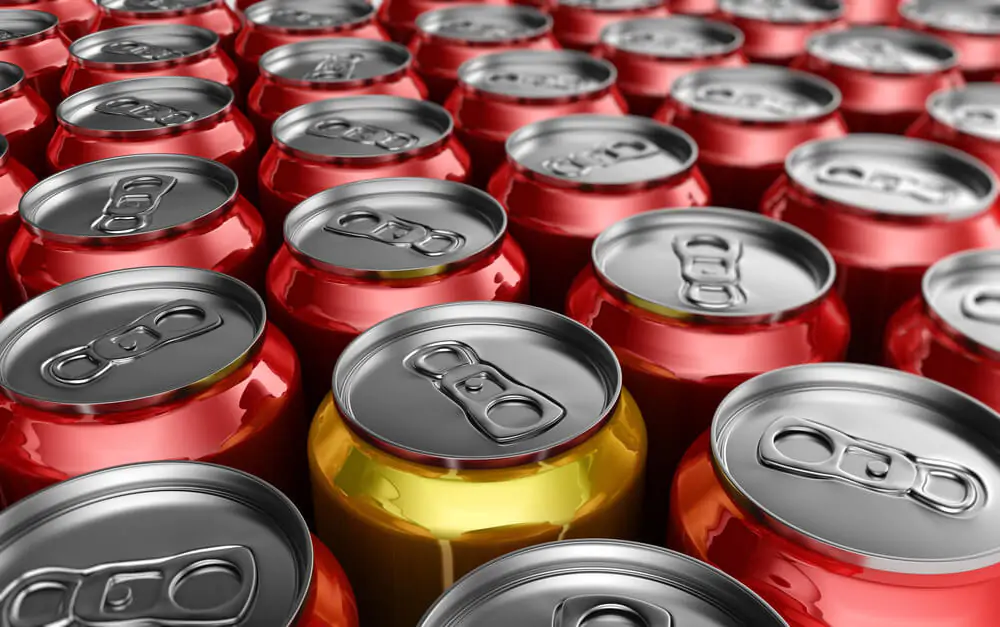
One reason kombucha is so popular is because it’s a tasty source of probiotics, which as strains of good bacteria that can help improve digestion and keep your gut healthy. However, the question is, does the alcohol content of hard kombucha have an impact on the probiotics?
It is not safe to say that you will be consume a decent number of live probiotics in hard kombucha. Some companies conducted tests and discovered the bacteria could not survive a high ABV (alcohol by volume) ranging from 5.6% to 7.6%, but others believe the probiotics can endure a lower ABV.
You may get some good germs from hard kombucha, but the number of probiotics that are alive and well is questionable. Regardless of the form consumed, alcohol can lead to gut dysbiosis and reduced gut microbiome biodiversity.
What Is Hard Kombucha?
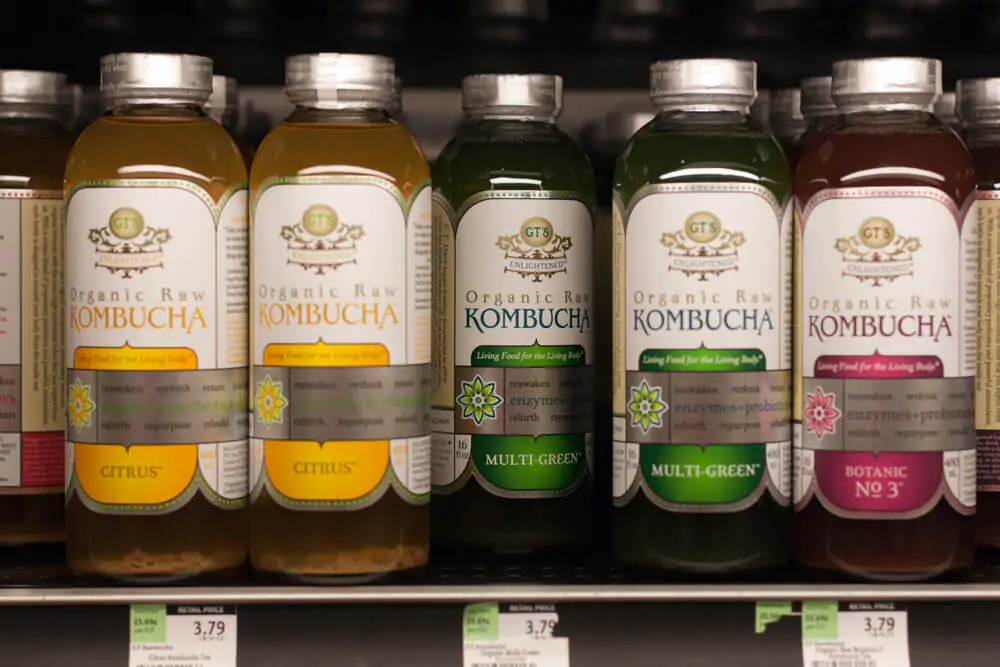
Like its counterpart with lower alcohol content, hard kombucha is a fermented tea filled with gut-friendly probiotics. Since kombucha is a fermented drink, it contains small amounts of alcohol (usually below 1%), but hard kombucha contains high amounts of alcohol by volume (ABV) — as much as 8%, which is equivalent to a really boozy beer!
Some companies will add more sugar and yeast to prolong the fermentation process, as it can increase the ABV in hard kombucha. Hard kombucha requires more fermentation cycles than regular kombucha, and more sugar and yeast are added during the later stages of the fermentation process.
You may wonder if hard kombucha is healthier than beer, wine, or other alcoholic drinks. While some hard kombuchas are similar to a regular kombucha in sugar, calorie, and ABV content, others are more similar to a stout or even a Long Island iced tea.
Our guide on where to buy Flying Embers kombucha might be helpful.
Health Benefits Of Hard Kombucha
One of the reasons why this fermented type of tea has become so popular is because of the purported health benefits of regular kombucha. Although further research is still needed, regular kombucha may help boost your immune system, improve digestion, and remove toxins in your body.
You might also be interested in learning if hard kombucha contains caffeine.
Probiotic Power
During the fermentation process, kombucha produces probiotics, and they help keep the bacteria in your body under control. Although the word “bacteria” has a negative reputation, there are good and bad bacteria. The probiotics in regular kombucha help the gut balance these two strains of bacteria, keeping the drinker’s gut healthy.
Fermentation Benefits
The compounds found in kombucha and fermented foods break down phytates and lectins, which interfere with the absorption of nutrients. This helps us maximize the nutritional content of the food we eat.
Vitamins And Antioxidants
Hard kombucha is a rich source of vitamin B12, which can provide an energy boost. It also contains high levels of antioxidants, which help fight free radicals that cause damage to the cells in our bodies. The antioxidants provided by this drink are natural and even more beneficial than antioxidant supplements.
4 Tips For Buying A Healthier Hard Kombucha
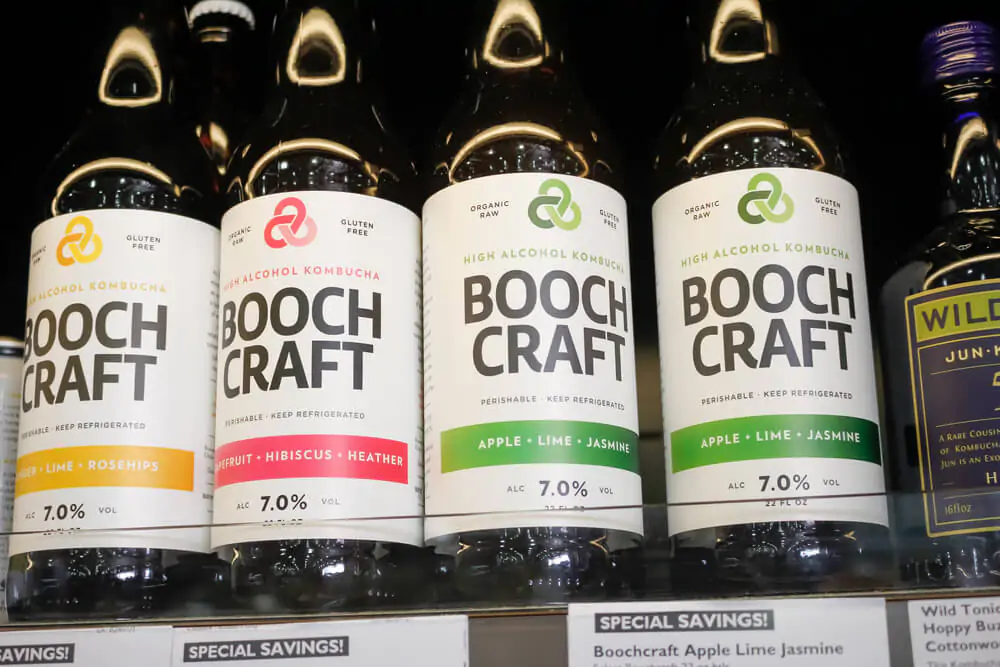
Here are some of the things that you need to consider when buying hard kombucha:
1. Choose Lower ABV Varieties
Whether you are drinking hard kombucha or a New England IPA, keep an eye on the alcohol content. Since some hard kombucha does not provide nutritional information, keep in mind that the lower the ABV, the lower the calories.
Many hard kombuchas are about 7% to 8% ABV, but you can always find some with 4.5% to 6% ABV — always choose the one with a lower ABV.
2. Go Light On Sugar
It is impossible to completely sugar in hard kombucha since it is part of the fermentation process. However, some hard kombucha brands will only use the necessary amount of sugar and will not add any more.
Without having nutritional information in front of you, paying close attention to the ABV will hint at the drink’s sugar and carb content. As mentioned earlier, the lower the ABV, the lower the calories, which also means that it is lower in carbs and sugar. Some of the hard kombuchas at 4.5% ABV even say they do not have any sugar as it is all fermented away.
3. Be Careful With Add-Ins
If you are using hard kombucha as a mixer, think of it as a drink on its own. It already contains alcohol, carbs, and sugar, so be careful of the garnishes, juices, and liquor you add to it. Mixing it with bourbon, vodka, or other alcoholic beverages adds to the alcohol content and overall calories.
Hard kombucha can be more than just the combination of tea, sugar, and SCOBY — some have fruit juices, for example, to add flavor. Other hard kombucha brands (like the Flying Embers) contain adaptogens and nootropics, so consult your doctor, especially if you are taking certain medications.
Some kombucha manufacturers add a lot of sugar to make it more enjoyable. If you are buying kombucha – hard or regular – check the nutritional information first to see what else you are getting in the bottle.
4. Be Mindful Of Serving Size
The standard drink is 14 grams or 0.6 ounces of pure alcohol. A 12-ounce can of beer at 5%, 8 ounces of malt liquor at 7%, and five ounces of wine at 12% ABV. Some hard kombuchas contain two servings per bottle or can, so check before buying.
Some hard kombuchas come in large bottles, which I find annoying since they lose their fizz if you do not put a stopper in immediately. So, if possible, you should try to stick to a single serving bottle or can. This way, you can decide whether you want to have another one or not.
3 Healthier Hard Kombucha Brands To Buy
To give you some healthier options, here are some hard kombucha brands that are worth buying:
1. Flying Embers
If you are looking for something more than just probiotics in your hard kombucha, then try Flying Embers. It contains adaptogens, which work to counteract the effects of stress in the body, and nootropics, which can enhance cognitive performance. This drink has an ABV of 4.5%.
Brewed with that authentic California farmer mentality, Flying Embers’ hard kombuchas do not shy away from combining sweet and savory flavors like Grapefruit Thyme, Pineapple Chili, and Watermelon Basil Sea Salt. They also have some classic blends — their berry flavor includes berries, elderberries, raspberries, and goji.
You may also be interested in reading our guide on what kind of alcohol is in flying embers?
2. Kombrewcha
Kombrewcha’s hard kombucha comes in three flavors — berry hibiscus, lemongrass lime, and royal ginger. Made from USDA-certified organic ingredients with only 4.4% ABV, Kombrewcha is perfect if you are looking for a light drink. In addition, it only contains 120 calories and seven grams of sugar per bottle or can.
3. Booch Craft
Founded by three friends from San Diego, Booch Craft is all about brewing organic fruits and local ingredients. Their main line of hard kombucha, which includes Ginger Lime, Lemon Maple, and Orange Pomegranate, has a 7% ABV and features freshly squeezed juices. They also offer a seasonal selection of hard kombucha that highlights seasonal fruits, such as watermelon and winter citrus, as well as a heritage collection of small-batch recipes.
You may also be interested in reading our guide on is hard kombucha gluten-free?
